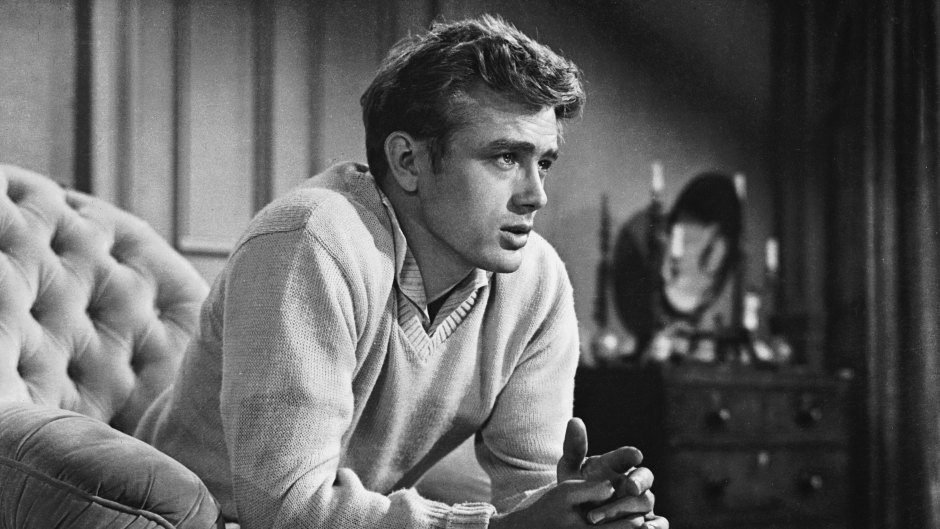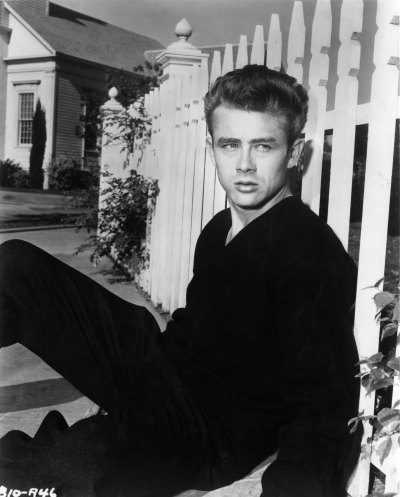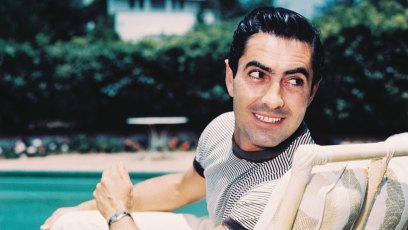
John Kobal Foundation/Getty Images
Inside James Dean’s ‘Super Private’ Relationship With Agent Jane Deacy: She Protected His Secrets
During filming of the 1955 classic East of Eden, James Dean wrote a letter to “Lady Jane,” the woman he also called “Mom.” In it, he expressed his dislike of L.A., his quest to find a discreet dentist, asked about his finances, and assured her he was doing fine. “Too much smoking. [Have] stopped completely, also stopped drinking. Taking vitamins also,” he wrote in the two-page letter. “I’m fatter now and feel much better. Tear myself up in New York. Build myself up in California (health and maybe career huh?).”
Jane Deacy, the woman James addressed in the letter, believed in the young actor before anyone else. After signing him to her nascent talent agency in New York, she helped James make job connections, paid his bills, protected him from blackmail, and kept his secrets even after his 1955 death. “She went above and beyond what agents did at that time,” says Jason Colavito, author of a new examination of the star’s private life (due out from Applause Books this fall).
James had lost his own mother, Mildred, to cancer when he was 9, leaving a hole in his life. “He was very close to his mother. She had encouraged his interest in the arts with storytelling and fantasy,” says Colavito. “But the most important influence his mother had, sadly, was in dying. He never got over her death. He treated Jane like a mother figure.”
Early Promise
After studying drama at UCLA, James dropped out in January 1951 and moved to the Big Apple. “New York frightened and overwhelmed me,” the actor said. “For the first few weeks I barely strayed from my hotel. I would see three movies a day to ease the loneliness I felt.”
James’ search for an agent led him to the offices of Louis Shurr, theatrical agent for Bob Hope and Ginger Rogers. Jane had started at the company as a switchboard operator, worked her way up to one of the office’s top agents, and was looking for clients to join her in her own enterprise. “Jimmy appealed enormously to Jane’s maternal instinct. He had that lonely boy quality which women find irresistible,” a coworker told Ronald Martinetti, author of The James Dean Story. “And, of course, she believed he had talent. Like all good agents, she almost has a sixth sense when it comes to finding actors. From the very beginning her faith in Jimmy was utter and complete.” In addition to helping James find jobs, Jane handled his personal finances — which were messy both before and after he became a star. “He had his bills sent to her, and she would pay them out of her own money and then reimburse herself from his checks,” says Colavito. When James was broke, Jane would sometimes slip him $5 and tell him to pay her back at a later date.

She also tried to impress upon the young, hotheaded actor the importance of being professional. “He was always an undisciplined performer. He was chronically late and had challenges following instructions and doing what he was told,” explains Colavito. “She couldn’t impose discipline on him, but she did try to get him to understand the importance of the business side of acting — the niceties like filling out your paperwork, showing up on time, and doing your job.”
A Star Is Born
By 1953, Jane’s faith in James paid off when he was cast in East of Eden — but the job also put a target on the actor’s back. She began receiving demands for money from Rogers Brackett, a gay advertising executive turned theatrical producer whom James had lived with for several months in the early 1950s. “Rogers Brackett called me just now, and he’s on the warpath again. wants some action,” Jane wrote to James in a letter.
“Brackett was trying to launch a Broadway show, and basically he wanted James to pay for it,” explains Colavito. “The implied threat, of course, was that Brackett would go public and ruin James’ career if he didn’t get money.”
Other correspondence reveals that Brackett’s attorney demanded $1,200 as repayment of a “loan” — money the producer claimed he had previously spent on the young, broke actor. With Jane’s help, James eventually agreed to pay Brackett $800 in installments in return for his silence on the matter.
Jane, who died in 2008, never told a soul. The settlement to Brackett only recently came to light when her family auctioned off letters, photographs and documents from Jane’s years of working with James. “My grandmother kept her relationship with him super private. They were very close,” Jane’s grandson, John Paul Deacy, tells Closer exclusively, adding that James’ death in a car crash in 1955 broke Jane’s heart. “She was devastated when he died and never wanted to talk about him. It hurt too much.”







































